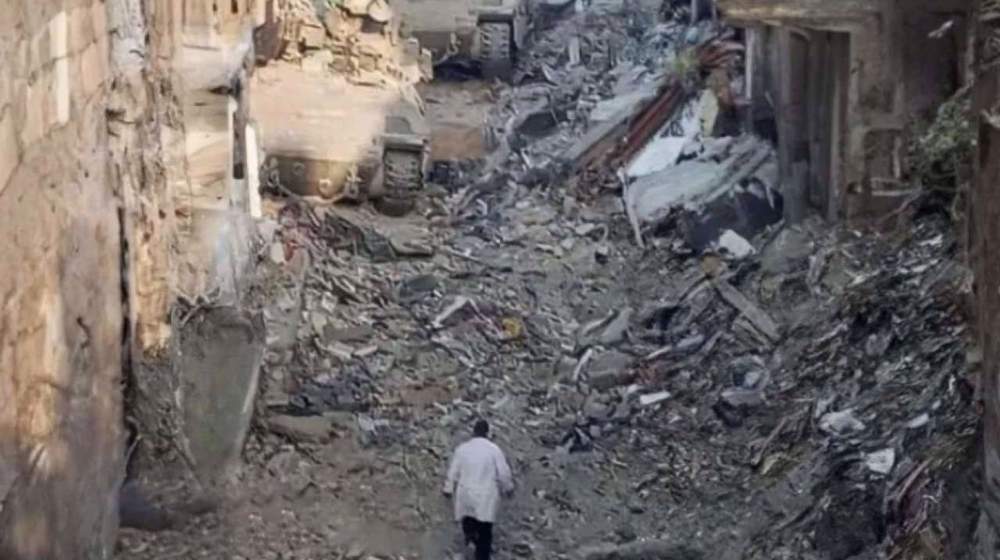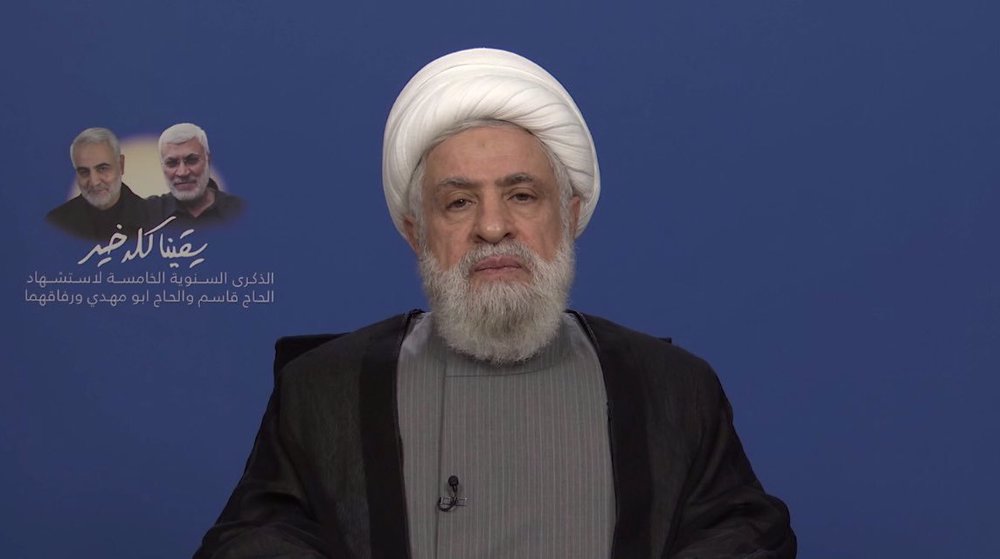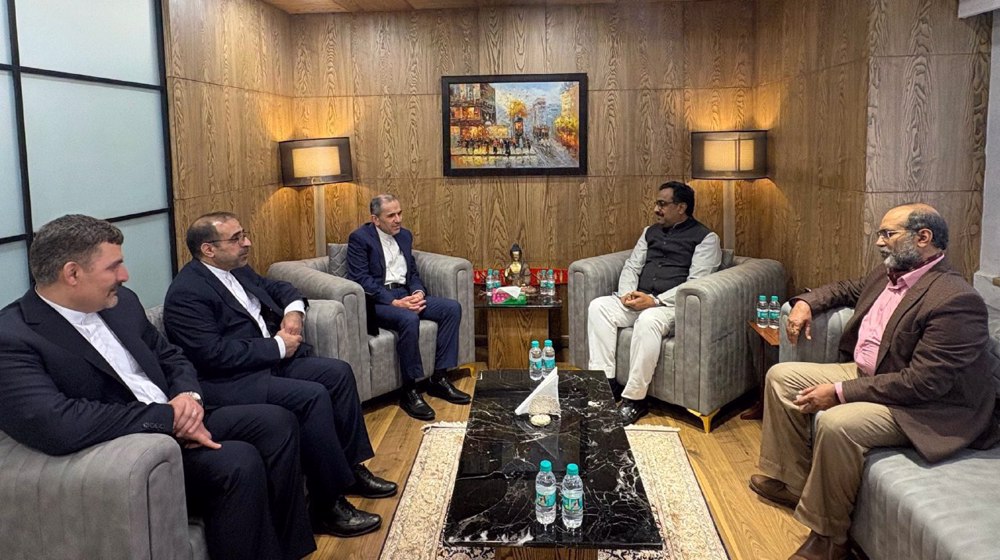Senior Iranian official rules out possibility of Rouhani-Trump meeting
A senior Iranian official has ruled out the possibility of talks between President Hassan Rouhani and his US counterpart Donald Trump, saying a meeting without any given objectives will fail to solve problems.
“We have always announced that a meeting will not solve problems and it should entail objectives, and as long as we do not trust the opposing party as to whether the objectives will be realized, talks of a meeting is uncalled-for,” the chief of Staff of the Iranian president, Mahmoud Vaezi, told reporters on the sidelines of a cabinet session on Wednesday.
He said the US should return to the P5+1 group and show its commitment to the 2015 nuclear deal that Washington left last year so that the Iranian nation can reap the full benefits of the agreement.
Vaezi echoed the Iranian president’s earlier remarks that the US needs to lift sanctions reimposed against Iran as the first step.
President Rouhani said on Tuesday that the Islamic Republic can sit at the negotiating table to solve any issues if the enemy returns to "normal conditions" and realizes it had taken a wrong approach, referring to the US’s withdrawal from the Iran deal, known as the Joint Comprehensive Plan of Action, and the reinstatement of sanctions against Tehran.
"The party who left the negotiating table and upended an agreement must come back to normal conditions," Rouhani said, addressing a group of academics and physicians in Tehran. Otherwise, Iran is left with no choice but to show resistance, he added.
Vaezi said that Iran was receiving mixed signals from US officials, as Secretary of State Mike Pompeo had set 12 conditions for talks with Iran while President Donald Trump said he was ready to engage in a conversation with Iranians with no preconditions.
The comments came shortly after Pompeo backed off from the 12-point list of “basic requirements” he had put forth as a prerequisite for a new deal with Iran, and said on Sunday that Washington was prepared for unconditional talks.
On Iran’s countermeasures against the US actions, Vaezi said that Tehran would take the third step in reducing its commitments under the JCPOA if there is no progress in talks with the European side.
Iran economic delegation to visit France next week
He said an Iranian economic delegation will be visiting France next week to discuss the details of negotiations with the French side on a plan about reducing Tehran-Washington tensions.
"Iran and France have their own views [on the matter]. We are having consultations in the country while the French are consulting with the EU. And we will announce [the result] once It is finalized," Vaezi said, adding that there has been progress in talks between Tehran and Paris.
The United States remarkably stoked tensions with Iran in May 2018 when Trump pulled his country out of the nuclear accord, and re-imposed harsh sanctions against the Islamic Republic in defiance of global criticisms.
After the US exit from the JCPOA, the European parties to the deal pledged to help the survival of the JCPOA but have so far fallen short of fully implementing their commitments, prompting Tehran’s criticism.
In response to the US actions and Europe’s failure to live up to their obligations, Tehran has rowed back on its nuclear commitments twice in compliance with articles 26 and 36 of the 2015 deal.
As a first step Iran increased its enriched uranium stockpile to beyond the 300 kilograms set by the JCPOA.
In the second step, Tehran began enriching uranium to purity rates beyond the JCPOA-limit of 3.76 percent.
Trump not to be trusted for talks
Meanwhile, Ali Rabiei, spokesman for the Iranian administration, said Iran will never give up diplomacy but stressed that the US president could not be trusted as it was Trump who had left the JCPOA.
“Given the characteristics of the US president, we have no trust in him, but we will not give up diplomacy at all, while we will not [brook] abjection or pressure either as we said it from the very beginning,” he said.
He added that it was the US that left the JCPOA and it should reverse its decision.
“We will decide after the US returns to its previous point; however, considering Trump's character, he may still make [wrong] decisions if he returns to the previous point,” he added.
Iranian Foreign Minister Mohammad Javad Zarif last week went on a tour of Europe that took him to four countries, including France, where he held meetings with French President Emmanuel Macron and Foreign Minister Jean-Yves Le Drian.
Despite US efforts to destroy diplomacy, met with French President @EmmanuelMacron and @JY_LeDriane in Paris today.
— Javad Zarif (@JZarif) August 23, 2019
Interviewed with Euronews, AFP, & France24.
Multilateralism must be preserved.
Next stops Beijing, Tokyo & KL after a day in Tehran. pic.twitter.com/xfBN66SBly
He is now in Malaysia on an Asian tour that already took him to China and Japan to discuss Iran’s diplomacy in the face of US pressures.
Yemen slams missile into northern part of occupied territories
Iran Armed Forces confront all violations against the country’s soil: Ground Forces cmdr.
IRGC deploying ‘new weaponry’ during underway Ground Force drills
VIDEO | Press TV's news headlines
Another key hospital taken out of service by Israel in north Gaza
Iran's top medical association urges ‘safe’ release of Gaza hospital’s director
Hezbollah chief: Gen. Soleimani was a leader on strategic, intellectual levels
Euro-Med warns Dr. Abu Safiya’s life in great danger due to torture













 This makes it easy to access the Press TV website
This makes it easy to access the Press TV website